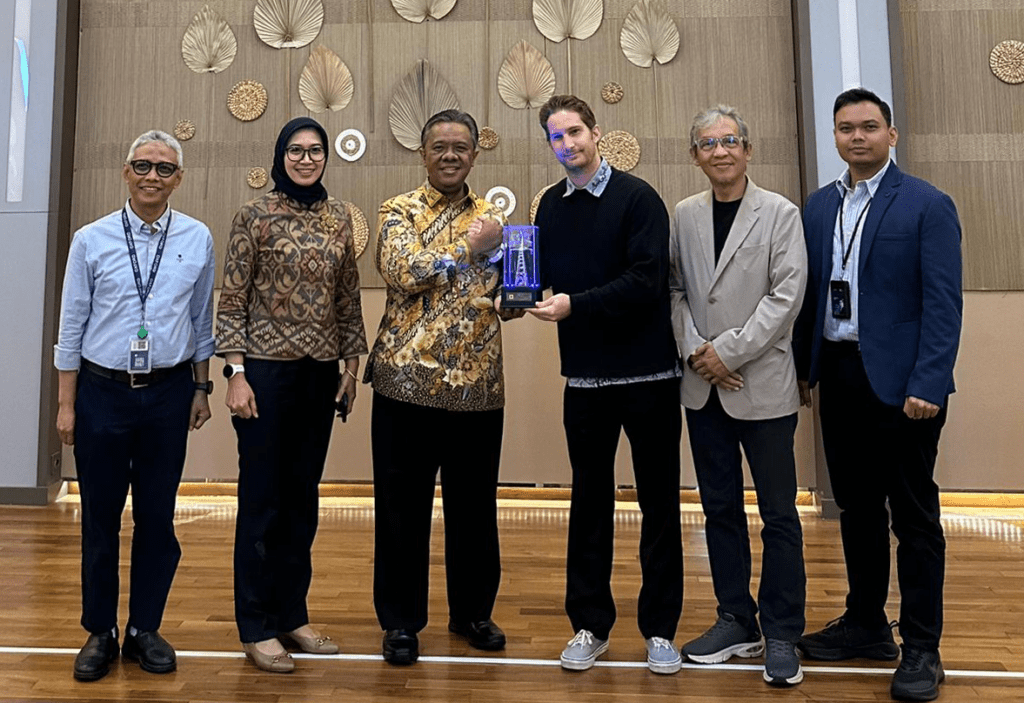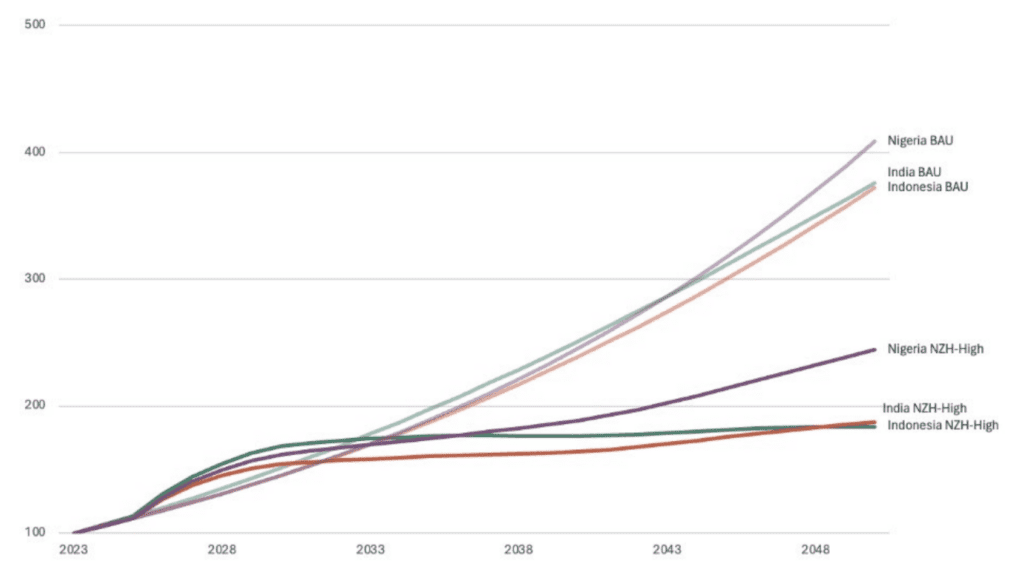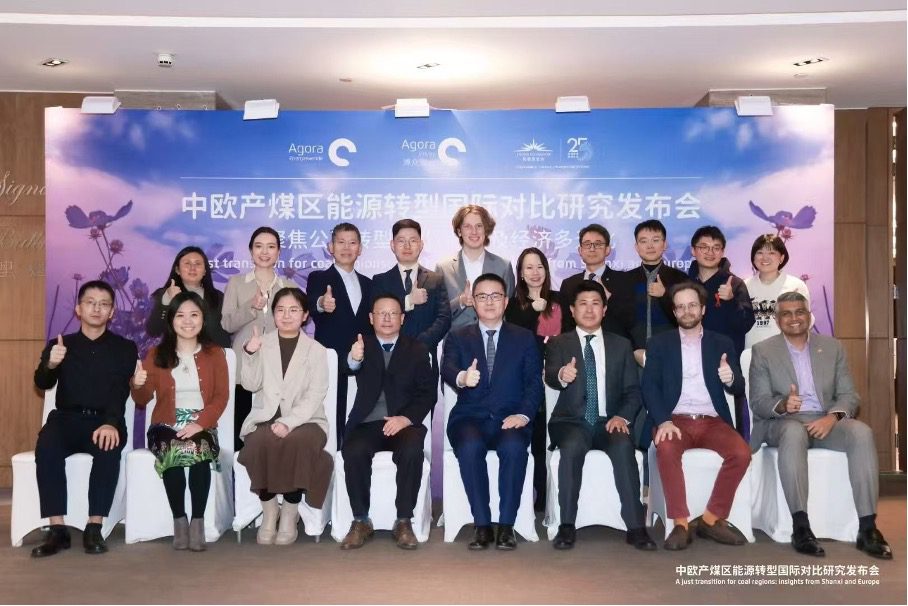
New collaboration with Indonesia’s state electricity company will provide model for the country
GBPN has launched a new collaboration with Indonesia’s state energy company, PT Perusahaan Listrik Negara (PLN), to adopt green building principles in all of the company’s 1,300 buildings across Indonesia. PLN is Indonesia’s largest energy company and provides electricity to most of the country. Considering the scale of PLN’s building operations, the project will help demonstrate the emissions savings and co-benefits of improving building energy performance in Indonesia. At the kick-off workshop attended by PLN’s Board of Directors and sub-holdings representatives, Yusuf Didi Setiarto, Director of Legal and Human Capital Management at PLN, noted that the collaboration “demonstrates the strong commitment of PLN toward becoming the backbone of Indonesia’s energy transition and a pioneer of net-zero emissions buildings in Indonesia.” Over the next two years, GBPN will provide technical assistance and capacity-building support to ensure effective implementation of PLN’s ambitious goals.


Doubling cooling efficiency is key to sustainably meeting skyrocketing demand
New CLASP research, “Bridging the Cooling Gap: Energy Efficiency as a Driver for Appliance Access,” finds that doubling cooling appliance efficiency in India, Indonesia, and Nigeria would make cooling more affordable, expand access to millions of people, and improve climate resilience. Building on recommended targets in CLASP’s Net Zero Heroes analysis, doubling the efficiency of fans, refrigerators, and air conditioners in these three countries by 2030 would drive down the total costs of ownership for each appliance by close to 60 percent in 2050.
Other benefits would include:
- $105 billion in annual consumer savings through reduced purchase and running costs in 2050
- Access to cooling appliances for an additional 510 million people
- More than 420,000 avoided premature heat-related deaths
Halving the energy consumed by these appliances is not only critical for climate mitigation but also can boost appliance ownership for people who need them.


Agora Industry welcomes new director
In February, Julia Metz was appointed the new Director of Agora Industry. An expert in industrial and climate policy, she will lead the think tank’s work on climate-neutral industry and hydrogen across key regions around the world. As a political scientist and economist, Julia brings extensive experience in climate and energy policy, having also previously led industrial transformation programs at Agora Industry and Agora Energiewende. She succeeds Frank Peter who, after three years at the helm of Agora Industry, will transition to a new role within the Agora think tanks as Director of Foresight and Research Coordination. In that role, Frank will oversee quantitative, cross-sectoral research. The Crux Alliance extends its congratulations to Julia and appreciation to Frank for his leadership, wishing them both success in their new roles.

Aircraft efficiency standards improvements have stalled; stronger standards needed
The ICCT just released a new analysis of commercial aircraft fuel efficiency from 1960 to 2024, revealing that improvements have stagnated since international CO2 standards took effect in 2020. The working paper, “Fuel burn of new commercial jet aircraft: 1960 to 2024,” finds that the primary cause of the efficiency plateau is a sharp decline in the certification of new, more efficient aircraft types. New type certifications have fallen from a peak of six per year in the late 1990s to less than one per year after 2020. Beyond Boeing’s 777X, manufacturers have not committed to developing additional new aircraft types before 2035. “This research demonstrates that the International Civil Aviation Organization’s 2028 CO2 standard lags state-of-the-art technology by about a decade,” said Nikita Pavlenko, the ICCT’s Aviation Program Director. “With improvements in new aircraft expected to contribute about one-sixth of all emissions reductions under aviation’s net-zero target, stronger standards are crucial.” The analysis concludes that a CO2 standard that is just 15 percent more stringent than the current requirement is all that is needed to promote the development of new, more efficient aircraft types. This recommendation comes at a critical time as the International Civil Aviation Organization’s Committee on Aviation Environmental Protection is considering the international CO2 standard.


Agora launches just transition index for coal regions with insights from China and Europe
A new report by Agora Energy Transition China, Agora Energiewende, and Energy Foundation China introduces the Just Energy Transition Index, a tool that benchmarks coal-to-clean energy progress and offers a quantitative framework to guide the development of tailored regional transition strategies. Comparing six regions across China and Europe, it focuses particularly on Shanxi, China—a province still heavily dependent on coal production and consumption.
Lessons indicate that coal-heavy regions require early action for a just, cost-effective transition. Prioritizing policies that integrate sustainable economic development, such as investing in clean technologies and establishing a dedicated transformation fund, can drive structural change.


Brazil’s government adopts ITDP’s sustainable mobility indicator to guide policymaking
The Brazilian national government, through the Ministry of Planning and Budget, will now use the People Near Transit (PNT) indicator to monitor and guide public policies within its Multi-Year Plan (PPA), the country’s strategic planning instrument that defines government priorities and budget allocations for the next four years. Developed by ITDP, PNT measures the percentage of the population with access to high-quality public transport and will help decision-makers accurately assess the impact of mobility policies at the national level. The incorporation of the PNT is a significant milestone in fulfilling ITDP’s mission to have governments at all levels adopt such indicators to advance accessible, sustainable mobility in Brazil. ITDP has also developed an English-language platform, the Atlas of Sustainable City Transport, which provides PNT data and more for thousands of metropolitan areas globally.


Heat pump policies “heating up” in China, the U.S., and the U.K.
China
RAP engaged with stakeholders from northern megacities Beijing, Chengde, Shenyang, and Qingdao to discuss heat pump deployment across district heating systems. Through workshops and discussions, participants considered barriers to deployment and policy solutions, including the phaseout of fossil fuel subsidies, flexible use of heat pumps to support the grid, and electricity pricing reform.
U.S.
In a recent RAP webinar targeted to the U.S. Mountain West, the director of the Arizona Office of Resiliency shared how she relied on RAP and CLASP’s hybrid heating concept for structuring a heat pump rebate program within Arizona’s Extreme Heat Preparedness Plan and Home Energy Rebate Program for cooling.
U.K.
After three years of planning, the U.K. Clean Heat Market Mechanism became law in late January. This novel legislation underpins the U.K. heat pump market by obligating boiler manufacturers to sell a proportion of heat pumps as part of boiler sales. Leveraging reports, consultation responses, op-eds, and direct engagement, RAP has supported U.K. officials with designing this policy since 2021.
RAP and its Crux Alliance partners will continue to capitalize on heat pump momentum by engaging local, state, and national officials and stakeholders to advance policies that accelerate adoption.
